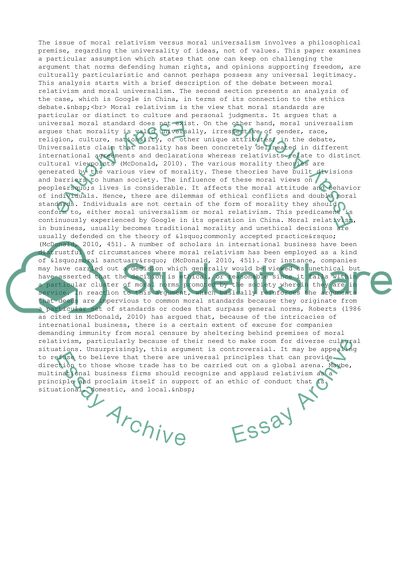Cite this document
(“International management - Ethics - Moral relativism vs moral Essay”, n.d.)
Retrieved from https://studentshare.org/business/1433151-international-management-ethics-moral-relativism
Retrieved from https://studentshare.org/business/1433151-international-management-ethics-moral-relativism
(International Management - Ethics - Moral Relativism Vs Moral Essay)
https://studentshare.org/business/1433151-international-management-ethics-moral-relativism.
https://studentshare.org/business/1433151-international-management-ethics-moral-relativism.
“International Management - Ethics - Moral Relativism Vs Moral Essay”, n.d. https://studentshare.org/business/1433151-international-management-ethics-moral-relativism.


